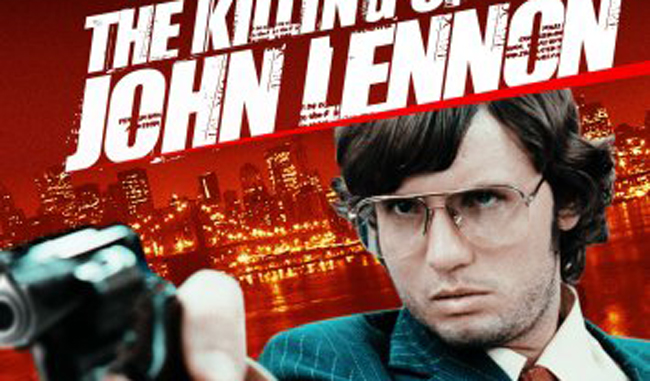
The Killing Of John Lennon Review
 Writer/Director Andrew Piddington’s stylish and unflinching biographical film about Mark David Chapman’s last months up to and including the moment he became the assassin of one of the most famous people on the planet.
Writer/Director Andrew Piddington’s stylish and unflinching biographical film about Mark David Chapman’s last months up to and including the moment he became the assassin of one of the most famous people on the planet.
The film was made in 2006, but didn’t really surface in theatres or DVD until 2008, and was somewhat overshadowed by another Chapman biopic (Jared Leto’s Chapter 27).
Fast forward to 2015 and the UK is getting a re-release of the film to DVD, which is under review here.
So let’s get into it shall we?
Most folks over 35 will have heard of Mark David Chapman (ever noticed how history always seems to deliberately remember assassins by this naming convention?). At the very least, there’s a high probability you know something of John Lennon’s assassination. Such is the continuing cultural significance of Lennon, and the lingering infamy of the nature of his tragic demise.
The film stars Jonas Ball as Chapman, and unlike Chapter 27 (which restricts itself to covering just the few days leading up to the shooting); it winds the clock back some 3 months prior to the terrible event, and also includes some earlier time periods shown in flashback. In this way, The Killing Of John Lennon attempts to be more of a character study of Chapman, his life, background, acquaintances and family, and of course his motivations in doing what he did. This is very significant in terms of how the movie plays.
Ball is an interesting choice to play the role, and like the aforementioned Jared Leto; had to put on a fair bit of weight to do it (although Leto’s transformation was more radical). As someone who is well aware of what Mark David Chapman actually looked like at the time of Lennon’s murder, I would say Ball weighs in a little light. He certainly pulls off the shabby, unkempt aspect rather well, but just looks a tad too fit and athletic. However, his performance is still quite compelling despite the weight issue, and the fact that he is a far more attractive and likeable looking man than the real McCoy ever was. For me, this is part of the problem I had with the film. Let me stress that the following issue may well be unavoidable, and indeed from a certain point of view; perhaps a necessary, if uncomfortable intention.
The issue is this: In seeking to explore the psyche of the killer who pumped four bullets into John Lennon’s back, the filmmakers cannot help but show us that Chapman is a man. An incredibly disturbed man of course, but a man nonetheless. This is problematic in a society that tends to want to play down any normal (dare I say ‘positive’?) human traits in our killer nutters, and just think of them as evil unnatural aberrations.
The net result is a film that can make you think the makers are going a little soft on their principal focus. However, I think for the reasons already mentioned; It’s something of an illusion.
In conclusion, The Killing Of John Lennon is an intriguing and intelligent film, and manages the neatest trick any well known ’true story’ biopic can manage; which is to create suspense and tension even though the conclusion is so colossally foregone and well known to the average viewer. Speaking of the ‘conclusion’, the actual assassination is impressively reconstructed, and a shout out to Tom J. Raider here for his Lennon portrayal.
So, does rendering this tragic story out in ‘based on true events’ movie form really bring anything worthwhile in addition to simply watching a good documentary, or reading a book on the subject? Well, that depends on what you want to know. The film is certainly a compelling watch, and prides itself on its thoroughness and accuracy (basing all of Ball’s internal monologues on Chapman’s actual writings and interview transcriptions for example).
On balance its a thumbs up, but don’t complain to us if you buy it and find yourself being slightly conflicted about how you feel regarding Mark David Chapman.
Ben Pegley
